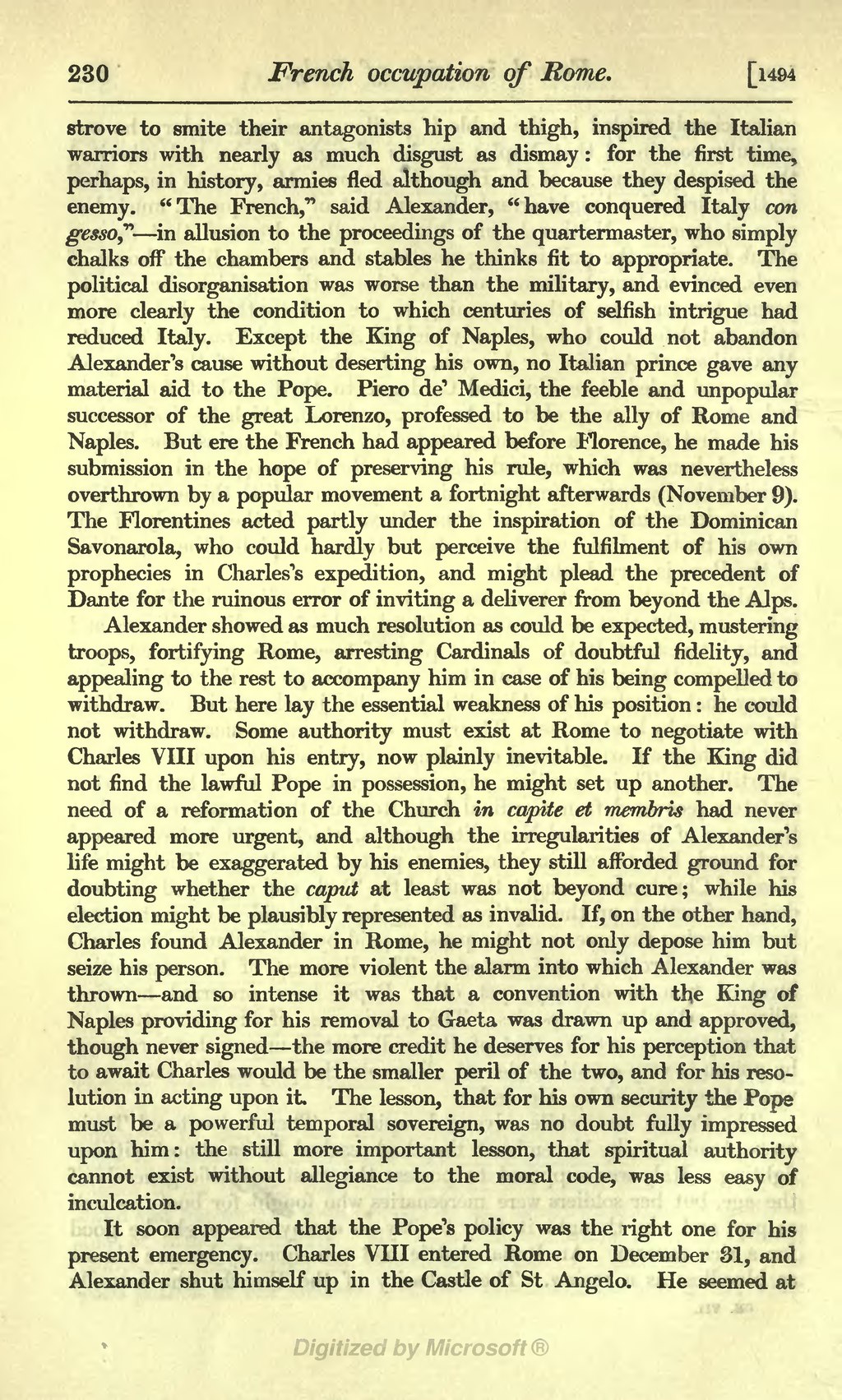strove to smite their antagonists hip and thigh, inspired the Italian warriors with nearly as much disgust as dismay: for the first time, perhaps, in history, armies fled although and because they despised the enemy. "The French," said Alexander, "have conquered Italy con gesso,"—in allusion to the proceedings of the quartermaster, who simply chalks off the chambers and stables he thinks fit to appropriate. The political disorganisation was worse than the military, and evinced even more clearly the condition to which centuries of selfish intrigue had reduced Italy. Except the King of Naples, who could not abandon Alexander's cause without deserting his own, no Italian prince gave any material aid to the Pope. Piero de' Medici, the feeble and unpopular successor of the great Lorenzo, professed to be the ally of Rome and Naples. But ere the French had appeared before Florence, he made his submission in the hope of preserving his rule, which was nevertheless overthrown by a popular movement a fortnight afterwards (November 9). The Florentines acted partly under the inspiration of the Dominican Savonarola, who could hardly but perceive the fulfilment of his own prophecies in Charles's expedition, and might plead the precedent of Dante for the ruinous error of inviting a deliverer from beyond the Alps.
Alexander showed as much resolution as could be expected, mustering troops, fortifying Rome, arresting Cardinals of doubtful fidelity, and appealing to the rest to accompany him in case of his being compelled to withdraw. But here lay the essential weakness of his position: he could not withdraw. Some authority must exist at Rome to negotiate with Charles VIII upon his entry, now plainly inevitable. If the King did not find the lawful Pope in possession, he might set up another. The need of a reformation of the Church in capite et membris had never appeared more urgent, and although the irregularities of Alexander's life might be exaggerated by his enemies, they still afforded ground for doubting whether the caput at least was not beyond cure; while his election might be plausibly represented as invalid. If, on the other hand, Charles found Alexander in Rome, he might not only depose him but seize his person. The more violent the alarm into which Alexander was thrown-and so intense it was that a convention with the King of Naples providing for his removal to Gaeta was drawn up and approved, though never signed-the more credit he deserves for his perception that to await Charles would be the lesser peril of the two, and for his resolution in acting upon it. The lesson, that for his own security the Pope must be a powerful temporal sovereign, was no doubt fully impressed upon him: the still more important lesson, that spiritual authority cannot exist without allegiance to the moral code, was less easy of inculcation.
It soon appeared that the Pope's policy was the right one for his present emergency. Charles VIII entered Rome on December 31, and Alexander shut himself up in the Castle of St Angelo. He seemed at
